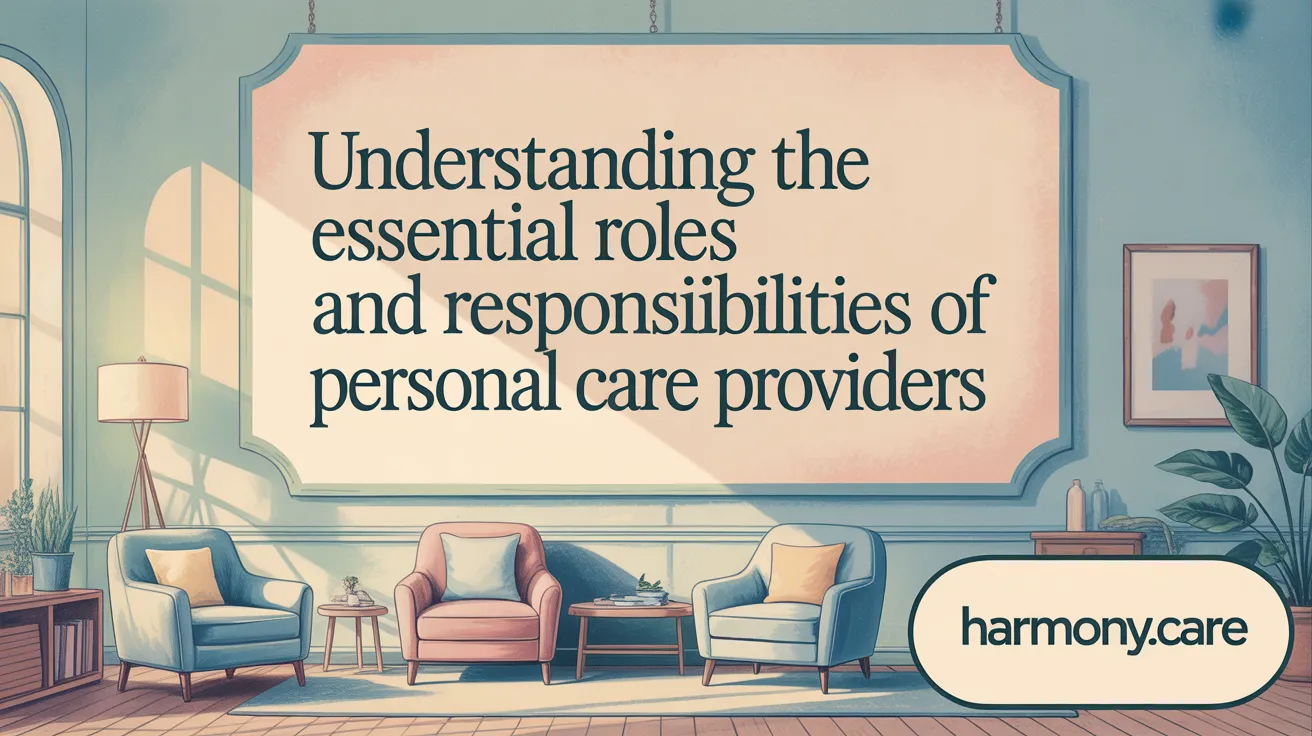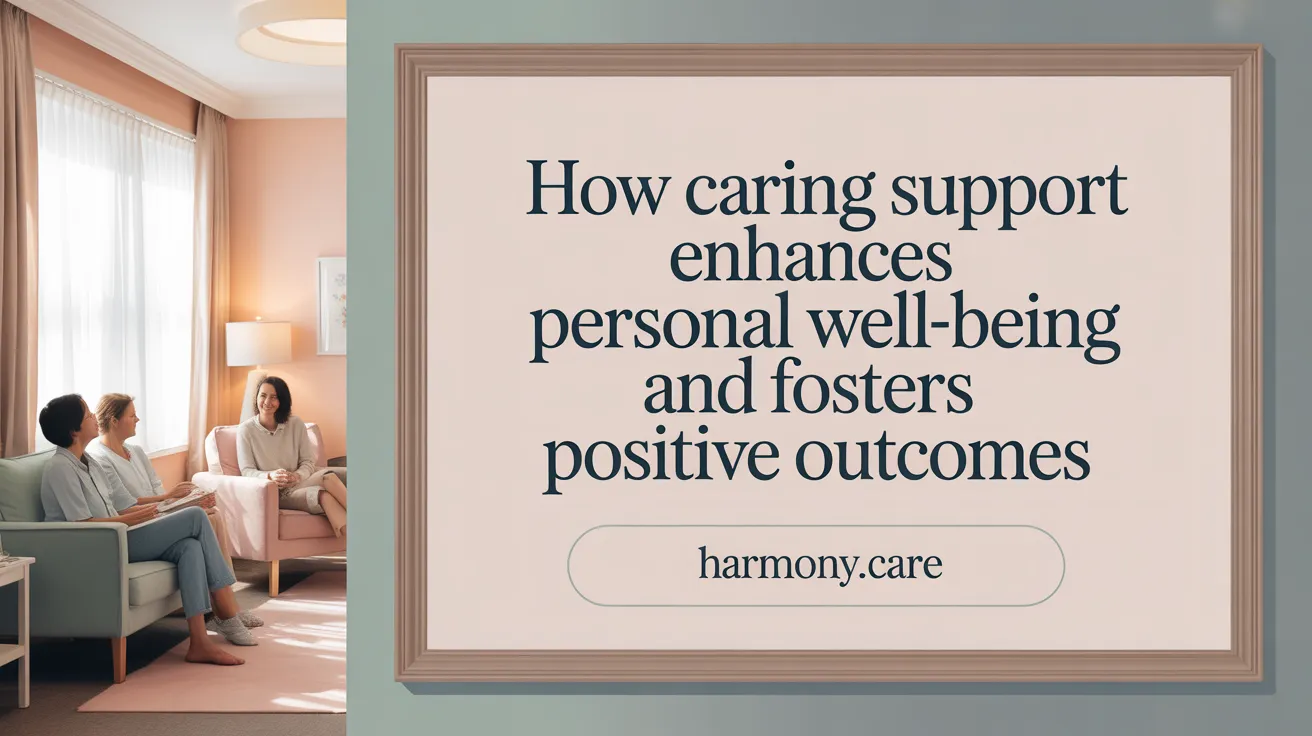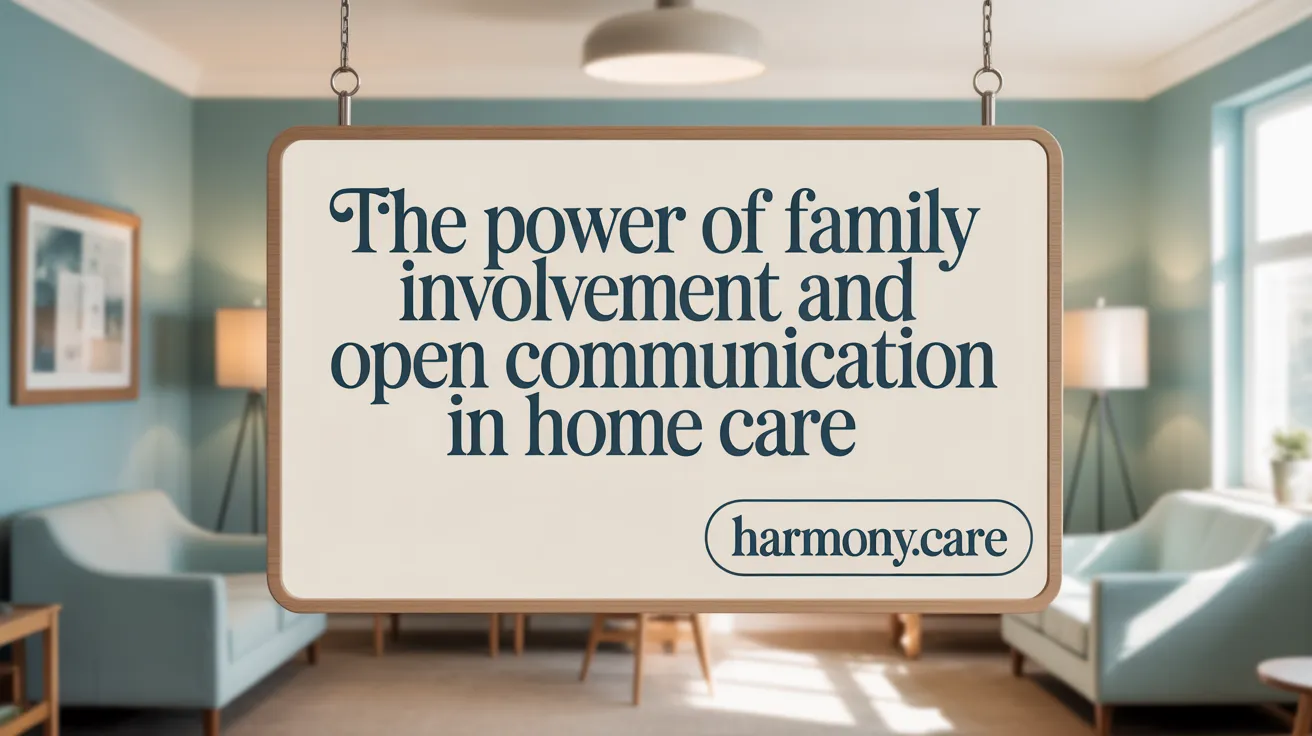Understanding the Crucial Role of Caregivers in Home Treatment
Within the evolving landscape of healthcare, caregivers in in-home settings serve as indispensable pillars supporting patients’ physical, emotional, and social well-being. This narrative explores the multifaceted roles caregivers play, the profound impact they have on patient outcomes, and the best practices and resources that empower them to succeed. Through evidence-based insights and practical guidance, we uncover how caregivers not only improve treatment efficacy but also enrich the quality of life for patients and their families.
Core Responsibilities and Multifaceted Roles of In-Home Caregivers

What are the core responsibilities and roles of in-home caregivers?
In-home caregivers, such as home health aides and personal care aides, play a vital role in supporting individuals who need assistance with daily activities. Their primary duties include helping clients with personal care tasks like bathing, dressing, grooming, toileting, and mobility support. These activities are essential for maintaining hygiene, comfort, and independence.
Beyond personal care, caregivers are responsible for household management. This encompasses preparing nutritious meals, performing light cleaning tasks, doing laundry, and organizing schedules or appointments. These efforts help ensure that the home environment remains safe, organized, and conducive to healing or comfortable living.
Monitoring health and medication adherence is another fundamental aspect of their role. Caregivers keep track of health symptoms, help with reminders to take medications on time, and observe any changes that might require medical attention. This proactive involvement supports better health outcomes and prevents hospitalizations.
Emotional support and companionship are equally crucial. Caregivers offer a listening ear, engaging in conversations and activities that foster emotional well-being. Their presence helps reduce loneliness, anxiety, and depression, especially for seniors or individuals with chronic conditions.
Ultimately, caregivers focus on promoting independence and safety within the home setting. Through comprehensive assistance, they enhance the quality of life for their clients, enabling individuals to remain in their familiar environments with dignity and respect.
Impact of Caregiving on Patient Outcomes and Treatment Success

How does caregiving impact patient outcomes and treatment success?
Caregiving plays a crucial role in improving health outcomes and ensuring the success of treatment plans for patients, especially seniors and individuals with chronic illnesses. One of the primary ways caregivers contribute is through meticulous medication management. Ensuring that prescriptions are taken correctly and on time helps prevent complications, hospital readmissions, and adverse drug interactions.
Moreover, caregivers support dietary and physical activity routines tailored to the patient’s conditions. For example, they help prepare nutritious meals aligned with medical advice and encourage gentle exercises or mobility routines to foster recovery and maintain strength.
Emotional and psychological support is another vital aspect. Caregivers offer companionship, reduce feelings of loneliness, and help manage stress, which has been linked to better immune function and faster recovery. They also foster motivation by aiding in daily healing activities and providing encouragement.
In addition, caregivers facilitate necessary safety modifications within the home, such as installing grab bars or removing hazards, which directly prevent falls and injuries. Coordination with healthcare providers ensures that care is continuous, well-informed, and responsive to changing health needs.
Training and preparing caregivers in specific skills, including managing medical devices or recognizing symptoms of deterioration, further enhances the effectiveness of care. This is especially important for managing complex health issues like dementia or post-surgical recovery.
Supporting the caregiver’s well-being through access to resources like respite care and community programs is essential. When caregivers are well-supported, they are more capable of providing consistent, quality care.
Ultimately, this comprehensive support system fosters better adherence to treatment protocols, reduces potential complications, and promotes the patient’s overall health, recovery, and quality of life.
Essential Qualities and Skills for Successful Caregiving

What qualities, skills, and traits are essential for successful caregivers?
Effective caregiving depends on a mix of personal qualities and practical skills that enable caregivers to deliver compassionate, respectful, and competent support. Among the most important qualities are empathy, compassion, patience, and flexibility.
Empathy allows caregivers to genuinely understand the feelings and needs of those they assist, building trust and rapport. Compassion ensures that caregivers approach their work with kindness and a sincere desire to improve their clients' well-being. Patience is vital when dealing with challenging behaviors or slower recovery processes, helping caregivers remain calm and supportive.
Flexibility enables caregivers to adapt to changing needs and unexpected situations, ensuring continuous quality care. In addition to these traits, effective communication and active listening are crucial skills that improve understanding and enable caregivers to address specific preferences and concerns.
Attention to detail, such as medication schedules and safety assessments, helps prevent errors and accidents. Additionally, being prepared for emergencies by knowing how to respond confidently keeps clients safe.
Respecting the dignity of clients and maintaining their privacy and independence fosters a positive environment. Caregivers must also be willing to learn and adapt through ongoing training, staying updated on best practices.
Finally, practicing self-compassion and self-care sustains caregivers' health and resilience, preventing burnout and ensuring they can provide consistent, heartfelt support.
| Key Personal Traits | Practical Skills | Why They Matter |
|---|---|---|
| Empathy | Effective communication | Builds trust and understanding |
| Compassion | Attention to safety | Fosters respectful care |
| Patience | Emergency response readiness | Ensures calm and confident action |
| Flexibility | Medication management | Adapts to evolving needs |
| Respect | Active listening | Maintains dignity and independence |
| Dignity | Continuous learning | Promotes professional growth |
| Adaptability | Behavioral problem-solving | Handles challenging situations |
| Self-compassion | Organizational skills | Sustains caregiver resilience |
In conclusion, developing a harmonious balance of these qualities and skills can significantly enhance a caregiver's ability to provide high-quality, person-centered care, improving outcomes and enriching the lives of those they serve.
Best Practices for Effective Caregiving in Home Health Environments

What are best practices for effective caregiving in home health settings?
Effective caregiving at home involves a combination of organization, communication, self-care, ongoing learning, and strong support systems. Setting clear, achievable goals helps caregivers focus their efforts and measure progress. Using organizational tools such as calendars, checklists, and medication schedules can help manage daily responsibilities efficiently and ensure nothing is overlooked.
Open and empathetic communication is crucial. Caregivers should listen actively, speak clearly, and show compassion to understand clients’ needs and foster trust. Patience and understanding are especially important when dealing with complex health conditions or emotional challenges.
Prioritizing self-care is essential to sustain quality care. Caregivers should allocate time for physical activities, relaxation, and hobbies to prevent fatigue and emotional burnout. Recognizing signs of stress and seeking help early supports mental and physical well-being.
Continual training keeps caregivers updated on new health protocols, technology, and techniques. Participating in workshops, online courses, and professional development opportunities enhances their skills, leading to safer and more effective care.
Building support networks is also vital. Connecting with family, friends, support groups, and healthcare professionals provides emotional encouragement and practical assistance. Asking for help, sharing experiences, and celebrating small successes can boost morale and resilience, ensuring caregivers remain motivated and capable over time.
Challenges Faced by Caregivers and Strategies for Overcoming Them
What challenges do caregivers commonly face and what strategies can address them?
Caregivers often encounter a variety of difficulties that can impact their health, emotional well-being, and overall ability to provide care. One of the most prevalent issues is physical and emotional stress, which may lead to burnout if not properly managed. This stress arises from the physically demanding tasks like lifting or assisting with mobility, as well as the emotional strain of witnessing a loved one's decline or managing complex medical needs.
Many caregivers also feel unprepared due to gaps in knowledge or lack of proper training. They might struggle with medication management, behavioral problems, or coordinating healthcare, all without sufficient guidance from health professionals. This lack of confidence can increase anxiety and even lead to accidental harm, such as medication errors or neglect.
Communication barriers further complicate caregiving. Poor interaction with healthcare providers and family members can result in misunderstandings, overlooked needs, and ineffective care plans. These challenges are compounded by financial and social strains—caregivers may face increased expenses, reduced work hours, or social isolation as caregiving responsibilities take precedence.
To address these obstacles, caregivers can turn to several supportive strategies. Engaging with community resources, including local support groups, respite services, and educational programs, helps alleviate feelings of isolation and provides practical advice. Respite care, in particular, offers caregivers temporary relief, reducing exhaustion and giving them time to focus on their own health.
Building knowledge through caregiver training enhances confidence and competence, especially in managing medications, behavioral issues, or emergency situations. Practicing good self-care is vital; maintaining nutrition, sleep, and regular checkups ensures physical resilience. Effective communication with healthcare teams and family members fosters better understanding, coordinated care, and emotional support.
These combined approaches—support networks, education, self-care, and clear communication—empower caregivers, reduce their burden, and improve the quality of care they provide. Policy initiatives and intervention programs continue to evolve, emphasizing the importance of recognizing caregivers' contributions, offering accessible resources, and setting standards for training and support to foster sustainable caregiving environments.
The Importance of Family Involvement and Communication in In-Home Care

How do family involvement and communication influence the quality of in-home care?
Active participation and open dialogue between families and caregivers play a vital role in providing effective and compassionate in-home care. When families stay informed about the specific needs, preferences, and health changes of their loved ones, caregivers can tailor their approach to better suit individual requirements, leading to improved health outcomes and higher satisfaction.
Good communication helps clarify roles, set expectations, and create a shared understanding of daily routines and medical considerations. This collaboration fosters trust and reduces misunderstandings, which can otherwise cause frustration or conflict.
Furthermore, involving family members enhances emotional support for both the care recipient and the caregiver. It alleviates feelings of loneliness and stress, creating a bond that encourages cooperation and mutual respect.
Shared decision-making is another benefit, empowering families to participate actively in care plans, modifications, and emergency responses. This cooperation not only ensures the care is personalized but also makes transitions and complex medical decisions smoother.
Clear, consistent communication can help manage critical situations better, especially during health changes or emergencies. Family involvement ensures caregivers have accurate, timely information and can act swiftly, reducing risks and improving safety.
Overall, the partnership formed through ongoing communication and family involvement enhances the consistency, safety, and emotional quality of in-home care. It creates a collaborative environment where everyone’s insights and concerns are valued, leading to a more effective and compassionate caregiving experience.
Support Systems, Training, and Evidence-Based Techniques to Empower Caregivers
What support systems, training, and resources are available to aid caregivers in their duties?
Caregivers benefit from a variety of support systems designed to strengthen their skills and well-being. Formal training programs offer essential knowledge, including medication management, safety protocols, and behavioral problem-solving. These programs often cover fundamental skills and are complemented by online courses and educational materials provided by organizations like the Family Caregiver Alliance.
Community resources such as respite care, adult day programs, support groups, and transportation services provide much-needed relief from caregiving responsibilities. Support groups help caregivers share experiences and advice, reducing feelings of isolation and stress. Respite care services give caregivers temporary relief, helping to prevent burnout and promote mental health.
Healthcare professionals, especially nurses, play a pivotal role in guiding caregivers through discharge planning, medication management, and ongoing care. Regular assessments and direct communication with health providers ensure caregivers are equipped with up-to-date information and skills. Government initiatives like the National Family Caregiver Support Program and legislation such as the CARE Act foster policies to support caregiving.
Additional tools include remote monitoring devices, medical alert systems, and online caregiver communities. These resources assist long-distance caregivers and help coordinate care efficiently. Engaging in self-care practices, seeking peer support, and utilizing local services are vital strategies in managing caregiver responsibilities effectively.
What evidence-based caregiving techniques enhance treatment efficacy?
Implementing evidence-based practices in caregiving improves patient outcomes and ensures safety. Personalized care planning that considers the specific needs and preferences of the individual enhances engagement and satisfaction. Caregiver training programs that focus on behavioral management, medication safety, and emergency response increase caregiver competence and help reduce risks like medication errors and caregiver stress.
Systematic assessments of caregiver and recipient needs allow targeted interventions, preventing harm and elder abuse. Active communication between caregivers and healthcare teams promotes understanding and cooperation, facilitating better adherence to care plans.
Emotional support and respite services are crucial in reducing caregiver burden, enhancing mental health, and maintaining long-term caregiving capacity. Psychoeducational resources that teach behavioral techniques and safety protocols further support treatment goals.
Community involvement and ongoing education ensure caregivers are well-equipped to handle changing needs, making caregiving more effective and safe for both caregivers and patients.
The Integral Role of Caregivers in Enhancing In-Home Treatment Success
Caregivers form the backbone of successful in-home treatment, intertwining hands-on assistance with emotional and social support to foster patient well-being and independence. Their diverse responsibilities, spanning personal care, health monitoring, household management, and advocacy, are critical to effective healthcare delivery. Although caregiving presents significant physical and emotional challenges, adopting best practices and accessing available support and training empower caregivers to overcome obstacles and provide high-quality care. Family engagement and clear communication further amplify these benefits, creating a collaborative environment centered on compassion and dignity. Recognizing, supporting, and equipping caregivers with evidence-based knowledge and resources ensures better patient outcomes, sustained caregiver resilience, and healthier families overall.
References
- The Essential Role of Caregivers in Home Health Care
- Supporting Family Caregivers in Providing Care - NCBI
- Family Caregivers in Home Care - Adoration Home Health & Hospice
- The role of caregivers in managing home medical interventions
- The Role of Family Caregivers in Coordinating Home Health Services
- What is the role of an in-home caregiver?
- 5 Best Practices of Highly Successful In-home Caregivers
- Family Caregiving Roles and Impacts - NCBI
- In-Home Care and Family Wellness - Advance Care Partners
